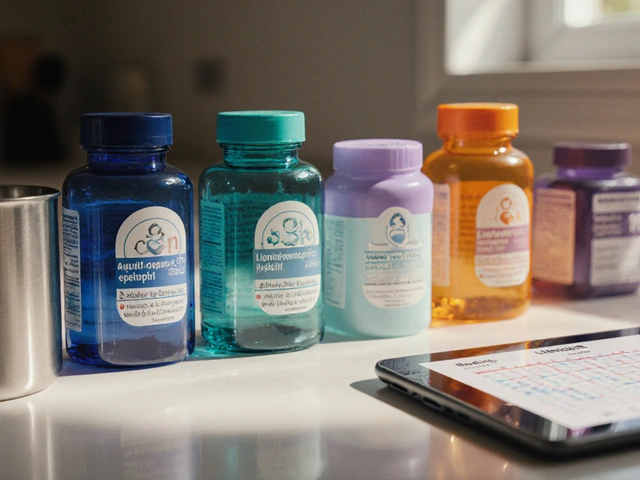Intestinal Infections: Quick Guide to Causes, Symptoms & Treatment
Did you know that a simple bite of contaminated food can kick off an intestinal infection that ruins your day? It happens more often than you think, and the good news is you can spot it early and act fast. Below you’ll find the most common culprits, the warning signs to watch for, and easy ways to get back on track.
What Usually Starts an Intestinal Infection?
Most gut infections come from bacteria, viruses, or parasites that get into your system through food, water, or close contact. Salmonella and E. coli love undercooked poultry or raw eggs. Norovirus spreads like wildfire on cruise ships or in schools. Parasites such as Giardia hide in untreated water, especially when you’re hiking or traveling abroad. Even a tiny slip‑up, like forgetting to wash your hands after the bathroom, can let these germs in.
How Do I Know I’m Dealing with an Intestinal Infection?
Typical symptoms show up within a few hours to a couple of days. Look out for sudden stomach cramps, watery diarrhea, nausea, and sometimes fever. If you notice blood in your stool or a high fever, it’s a sign the infection is more severe and you should see a doctor right away. Dehydration is a real threat—keep sipping clear fluids, and consider oral rehydration salts if you’re losing a lot of fluid.
Most mild infections clear up in a few days with rest and proper hydration. However, certain groups—kids, seniors, and people with weak immune systems—need extra care. For them, even a “simple” infection can lead to complications like kidney problems or severe electrolyte imbalance.
If the infection is bacterial, a health professional might prescribe antibiotics such as ciprofloxacin or azithromycin. Viral infections don’t respond to antibiotics, so treatment focuses on managing symptoms and staying hydrated. For parasites, medications like metronidazole or tinidazole are common. Never self‑medicate; the wrong drug can make things worse.
Beyond meds, a few home tricks can speed recovery. Eat bland foods—think toast, bananas, rice, and applesauce—until you feel better. Avoid dairy, caffeine, and spicy meals while your gut heals. Probiotic yogurt can help restore healthy bacteria, but choose plain varieties without added sugar.
Preventing future infections is simpler than you think. Wash hands with soap for at least 20 seconds, especially before meals and after using the restroom. Cook meat to safe internal temperatures—165°F (74°C) for poultry and 160°F (71°C) for ground beef. When traveling, drink bottled or boiled water, and peel fruits yourself.
Remember, your gut is a resilient system. Most infections are short‑lived, and with the right steps you’ll be back to normal soon. If symptoms linger past a week, or you feel unusually weak, call your doctor for a check‑up. Staying informed and acting quickly is the best defense against intestinal infections.

How Exercise Helps Prevent Intestinal and Vaginal Infections
Discover how regular physical activity strengthens gut and vaginal health, reduces infection risk, and boosts immunity with science‑backed tips and practical workouts.
Sep 25 2025




